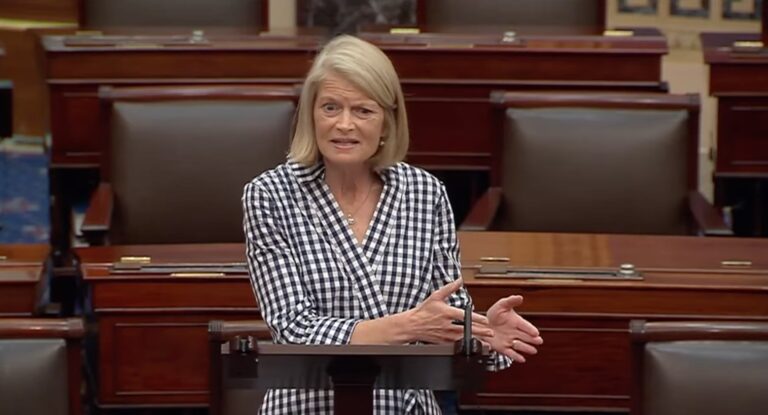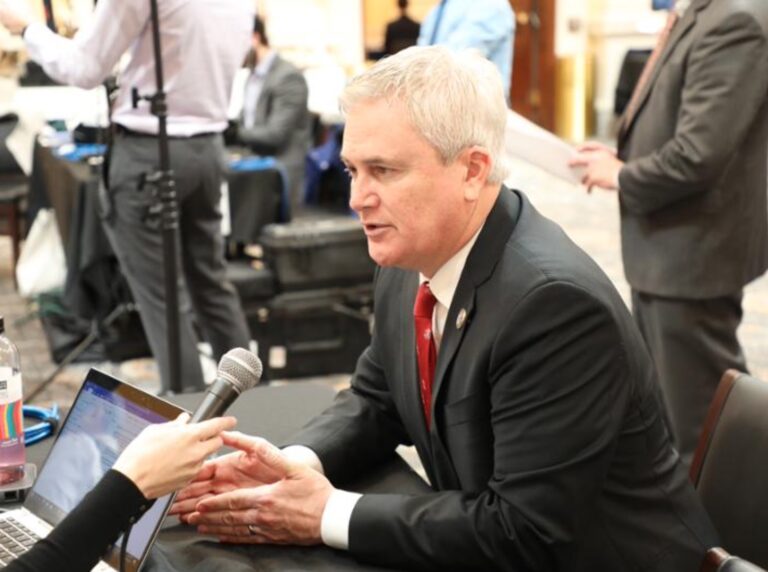By REP. KEVIN MCCABE
Alaska stands at a crossroads in its economic development. Vast untapped resources could propel our state into a new era of prosperity, but without the infrastructure to move them to market, they remain stranded. Central to unlocking this potential are the Point MacKenzie Rail Spur and Port MacKenzie.
The rail spur, a 32-mile extension connecting Port MacKenzie to the Alaska Railroad mainline near Houston, creates the shortest rail route from the Interior to tidewater. Port MacKenzie itself is a deep-draft facility across Knik Arm from Anchorage, with 9,000 acres of industrial land ready for exports and logistics. It is as ice-free as the Port of Anchorage, has never needed dredging, and can handle Panamax-size ships. The dock already has the safety features in place, making it an excellent solution for bulk exports.
This is not a pie-in-the-sky idea. Most of the infrastructure is already built, with nearly $184 million invested. What remains is leadership to finish the job. We cannot call ourselves a resource state while refusing to complete the transportation projects that move our resources to market. The return on investment is undeniable, and the benefits far outweigh any lingering concerns.
Completing the spur would mean thousands of jobs and hundreds of millions in new revenue. Up to 3,000 jobs in mining, timber, energy, and construction could be created, and the project could generate $300 million annually in royalties, fees, and taxes. A 2007 study projected $4.4 billion in long-term benefits. These are not speculative numbers; they reflect the enormous value of turning stranded assets into revenue-producing exports in a state that develops resources better, safer, and with more environmental concern than anywhere else in the world.
The resources are already there. Copper and zinc from the Ambler Mining District, where companies plan to export 1.7 million tons annually, could move through Port MacKenzie. The same is true for graphite, antimony, rare earths, and other minerals critical to modern technology. Timber and coal exports would gain new life with this route, reducing shipping costs by up to 70 percent compared to trucking or air. The biomass and LNG needed for globally required Sustainable Aviation Fuel are available through Port Mack and could be produced right there. In a global market where efficiency determines competitiveness, that margin is decisive.
This infrastructure would make Alaska’s resources competitive in global markets, especially with our Indo-Pacific Allies. It would directly support projects such as the $43 billion Alaska LNG development, which depends on efficient material transport. For a state struggling with declining oil revenues and population stagnation, diversification through Port Mack is not optional; it is imperative.
The advantages are not just economic but strategic. Alaska’s Interior holds critical minerals the nation needs for technology, renewable energy, and defense. Today those assets are trapped, forcing dependence on foreign suppliers, including China, for materials like rare earths and antimony. Completing the rail spur aligns with President Trump’s 2025 Executive Order expanding rail infrastructure for oil, gas, timber, coal, and minerals. It advances energy independence, strengthens national security, and supports Arctic defense by creating an efficient logistics route between Interior bases and tidewater.
Critics point to Port MacKenzie’s limited past use, but without rail access the port cannot attract the volume needed for viability. This is a chicken-and-egg problem. Completing the spur breaks the cycle, opening the door to high-volume and bulk exports and finally putting this asset to work for Alaskans.
The construction progress underscores how close we are. Seventy-five percent of the spur is complete, including 25 miles of embankment, bridges, 110 culverts, and a one-mile loop. What remains is track and signaling. This is not a shovel-ready project; it is beyond shovel-ready and overdue.
Concerns about navigation in Cook Inlet and winter operations are real but not insurmountable. They are the same issues faced by the Port of Anchorage. More powerful tugboats and skilled pilots have already solved these challenges, and operators themselves confirm the risks are well within their capabilities. What is not acceptable is continuing to let our mineral wealth sit idle while past investments gather dust.
Diversification for Alaska is not optional; it’s imperative. We need infrastructure that creates jobs, broadens our revenue base, and strengthens our position in global supply chains. The Point MacKenzie Rail Spur and Port MacKenzie do exactly that. They offer Alaska the chance to move from potential to production, from stagnation to growth.
The next governor must make this project a priority. That means securing federal grants, state bonds, and private investment to finish the job. It means streamlining regulations to move construction forward. And it means standing up to critics who are content to watch opportunity slip away for political reasons. Alaska cannot afford another decade of delay.
In the end, this is not about politics or one port or rail line. It is about whether Alaska will live up to its identity as a resource state. The jobs, the revenue, the strategic advantages, and the diversification are all within reach. What we need now is the leadership to bring them across the finish line.
The Point MacKenzie Rail Spur and Port MacKenzie are the linchpins of Alaska’s future. They will define whether our resources remain stranded in the Interior or flow to world markets. They will determine whether our state prospers or continues to tread water. The choice before the next governor is simple: finish what Alaska has already started, or let our resources, and our children’s future, remain stranded. The right choice is clear.
Rep. Kevin McCabe serves in the Alaska Legislature on behalf of District 30.
Kevin McCabe: Ranked-choice voting cheats voters, but Alaskans are fighting back
Kevin McCabe: The intentional delay of a Senate bill leaves revenue reform in legislative limbo
Kevin McCabe: Putting Alaska’s students first in 2026
Kevin McCabe: Why Alaska needs an Agriculture Department — and why the Legislature overstepped













